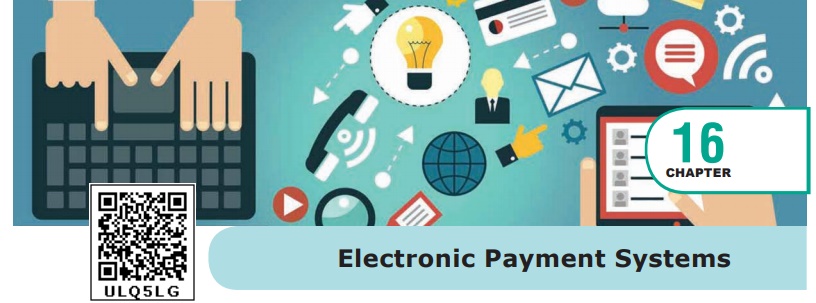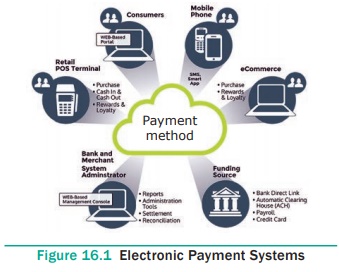Chapter: 12th Computer Applications : Chapter 16 : Electronic Payment Systems
Introduction to Electronic Payment systems

Electronic Payment
Systems
Introduction
to Electronic Payment systems
Everyday people buy or sell goods and services for
money. Money becomes the major medium of exchange. Later some payment systems
were developed out of a need to facilitate the growth of commerce and economic
development.
The media used for transferring the value of money
is very diversified, ranging from the use of simple payment instruments (e.g.
cash) to the use of complex systems (e.g. cryptocurrency). Physical money
(cash), is the traditional and most widely used payment instrument that
consumers use, in their daily lives to buy goods and services.
As the volume and variety of transactions expands,
the volume of money also expand. Using cash for each of large transactions is
neither feasible nor practically possible. Security and transportation problems
arise in cases where large amounts of cash transactions are involved.
Banks would support in such cases by offering other
payment methods. The cashless society has been discussed for long time. The
demise of cash and cheques could not be sudden. Though old habits hardly die,
people do not hesitate adapting new things.
Definition
An Electronic payment system is a financial
arrangement that consists of an intermediator to facilitate transfer of money-substitute
between a payer and a receiver. Sometimes it is also called liquidation,
clearing system or clearing service. It ensures the transfer of value from one
subject of the economy to another and plays an important role in modern
monetary systems.
Modern payment systems may be physical or
electronic and each has its own procedures and protocols that guide the
financial institution with payment mechanisms and legal systems.
Standardization has allowed some of these systems to grow globally.
The term electronic payment refers to
a payment made from one bank account to another bank account using electronic
methods forgoing the direct intervention of bank employees.
Payment system is an essential part of a company’s
financial operations. But it becomes complex, when many different payment
systems are used. Further challenges come from the continuous introduction of
newer payment systems such as paytm, UPI, bitcoin and various mobile payment
options. As a result there are more than 750 payment systems throughout the
world. See Figure 16.1

Related Topics